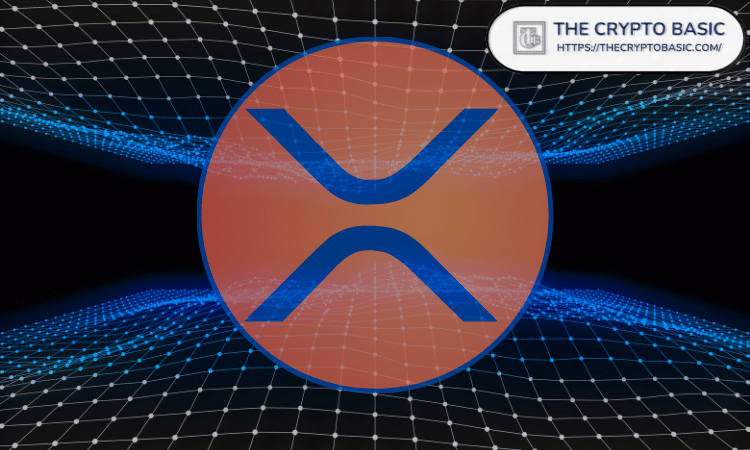XRP Ledger (XRPL) figures have explained why the XLS-30 amendment, set to introduce an AMM, faces perceived delays amid concerns raised by several community members.
The XRPL ecosystem is currently considering the XLS-30 amendment, which would introduce a native Automated Market Maker (AMM) to the network. However, concerns have emerged as validators on the XRPL have not yet voted for the implementation.
Community members have expressed their worries, with one user taking to X to voice their concerns, stating that validators seem to be voting against the amendment. They questioned the motivations behind this opposition and sought answers from David Schwartz, Ripple’s CTO.
Another community member suggested a radical shift in voting rights, proposing that the top 1000 XRP investors receive authority to make decisions instead of a small minority running XRPL nodes.
Reasons Behind the Delay
In response to these concerns, Jon Nielsen, an XRPL validator operator, emphasized that the delay is not about voting rights or minorities but rather the need for a rational decision regarding when the network should implement the amendment.
It's not about about voting rights or minorities. #XRPL needs sane people and a small group to make a sane decision on when votes can/should pass. If AMM (1.12.0 amendment) passed just now, these nodes (huge servers) would get blocked. What would happen to your #XRP and your… https://t.co/APPs172Ph6 pic.twitter.com/dh2JgQA6Qj
— Jon Nilsen ??☠️ (@jonaagenilsen) October 22, 2023
Nielsen pointed out that if the AMM amendment went live immediately, it would affect over 200 nodes that have not yet upgraded to the latest XRPL version, rippled 1.12.0.
He pointed out that this event could harm the XRP ecosystem and XRP holders. Nielsen asked investors to ponder what could happen to their XRP tokens if the network blocks out over 30% of nodes.
Additionally, another community member explained that the validators did not all consciously decide to vote “No.” They stressed that the default position for amendments is “No” until validators individually decide to vote in favor of the amendment.
They highlighted that the process of enabling amendments on XRPL typically takes time, averaging 130 days, not considering outliers. However, the AMM amendment is only about 46 days old. This fact invalidates the assertion that the amendment is facing unprecedented delays.
Wietse Wind, XRPL Labs founder and Xumm developer added to the discussion, emphasizing the importance of responsible disclosure and thorough auditing.
And sufficiently confident for me isn't right now. We'll get there, I see mostly AMM benefits ? But let's please not rush things out of greed.
— WietseWind (?+? Xumm @ XRPL Labs) (@WietseWind) October 22, 2023
He recognized that no software is flawless but stressed the need for sufficient confidence in the AMM’s implementation. Wind expressed his support for the AMM but cautioned against rushing the process.
It's not uncommon to find issues post audit. Some things are still being investigated by devs. They may yield something. They may not. Both great, either no problem, or a problem found.
Isn't it worth checking? Mind: audits are great and important. But what hasn't been found can…
— WietseWind (?+? Xumm @ XRPL Labs) (@WietseWind) October 22, 2023
WietseWind highlights the interesting shift in the XRP community’s perspective. While they used to emphasize decentralization and Ripple as just one player, now some seem to place undue reliance on Ripple’s statements. He believes it’s essential to acknowledge the achieved decentralization, where the entire ecosystem, not just Ripple, influences decisions. Rather than following one player’s lead, the community should celebrate diverse perspectives, work together, and find consensus without pressure or doubt about motivations. It’s a call to adapt to the evolved landscape and collaborate harmoniously.
I find what's happening quite interesting. Trying to stay as neutral as possible. But after years of uncertainty where we, often full of fire, explained the world Ripple is only just one player, where we preached and explained the decentralisation of the ecosystem, now we seem to…
— WietseWind (?+? Xumm @ XRPL Labs) (@WietseWind) October 22, 2023
A Comprehensive View
To provide a comprehensive view of the situation, Krippenreiter, a prominent XRP community figure, compiled a list of objective arguments behind the delay in voting for the XLS-30 amendment.
The arguments aimed to help the community understand the rationale of UNL validators who are hesitant to vote in favor of the amendment.
[1/?] The drama around XLS-30 (XRPL-AMM) has reached an all-time high.
But you still have no idea what's going on, don't you?
Here is a compilation of every objective argument I could find that makes current UNL-validators hesitant to vote in favor of XLS-30. ? pic.twitter.com/G9aHAnpGTE
— Krippenreiter (@krippenreiter) October 22, 2023
These arguments include concerns about the blocking of nodes that have not updated to rippled 1.12.0, a pathfinding bug, potential network issues due to poorly written scripts, and the risk of front-running the XRPL. Several individuals raised these arguments.
As highlighted by Krippenreiter, two other arguments came from Wind. These are unknown edge cases that may affect the network’s performance and the reliability of CertiK’s security audits.
Essentially, it is important to note that the perceived delay in voting is not a sign of opposition to the AMM but rather a reflection of the XRPL community’s commitment to ensuring that any significant changes are thoroughly tested and secure.
DisClamier: This content is informational and should not be considered financial advice. The views expressed in this article may include the author's personal opinions and do not reflect The Crypto Basic opinion. Readers are encouraged to do thorough research before making any investment decisions. The Crypto Basic is not responsible for any financial losses.



